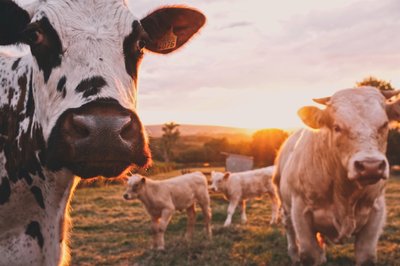An ever-increasing amount of data is being collected and processed at dairy farms using smart, interconnected devices. But how does this technological innovation benefit dairy farmers and their animals? The following article will shed some light on the benefits of smart farming technologies for the dairy sector.
Precision dairy farming represents a relatively new concept, which is closely associated with and fueled by the currently ongoing smart farming revolution. At the heart of this concept are technologies which put the individual animal and its contribution first, seeking to optimize welfare, resource-use and transparency. In this way, dairy farmers are able to enhance the quality of their produce, improve cost control mechanisms and implement more sustainable farming practices.
Jonny Burridge from the Manor Farm at Fundenhall, United Kingdom, represents one of the pioneers when it comes to the use of precision technology in dairy farming. In specific, three robotic milking machines and one herd navigator system help monitor the cows’ fertility cycles and enable quick diagnoses in relation to potential health problems. This is done by analyzing samples taken by the autonomous milking machines, which test the animals for levels of three hormones.

Progesterone, a steroid hormone that stimulates the uterus to prepare for pregnancy, enables the prediction of the cows’ fertility cycles with almost 100% accuracy, while the other two hormones provide indicators in relation to potential health problems such mastitis, a painful irritation of the mammary gland/udder, as well as ketosis, a metabolic disorder occurring when food intake does not provide sufficient energy input to support milk production. Crucially, all of these analyses can be done without interfering with the cows’ routines, making it possible to produce milk with happier and healthier cows.
The IoF2020 dairy trial follows the same objectives. By combining real‐time sensor data gathered from neck collars with GPS, machine learning technologies and cloud-based services, it seeks to create more value in the dairy chain. In addition, data on the feeding patterns of cows provide input to detect health issues at an early stage, while data to calibrate sensors remotely improves milk quality monitoring. In this way, IoT technologies help to use resources more efficiently, ensure high quality milk, improve animal welfare and decrease negative environmental impacts.